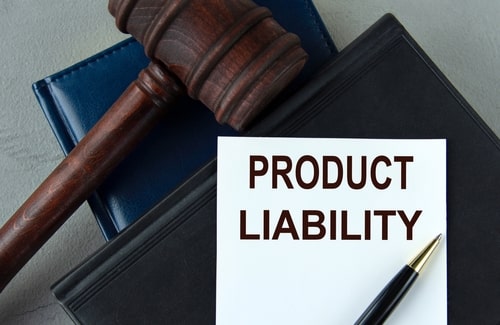Why Is Product Liability Important for Startup
An estimated 60,600 cases of emergency-department-treated injuries among kids younger than 5 was associated with nursery products in 2019. Defective products can cause massive injuries and even deaths costing companies huge amounts of money. For startup business owners and product developers, it is vital to include product liability in executing commercial activities and even designing a product. This is to ensure that a business is protected if there are manufacturing defects in the products that are sold causing a person to suffer injuries, disabilities, or at worst, lose their lives.
The Victim Has Legal Rights
Not all products are flawless. Some may have defects or may be perceived to be dangerous. Although corporations and manufacturers do their best to offer and provide high-quality products, mistakes can happen, big or small, leading to the release of faulty products in markets putting customers at risk for injuries. A defective product affects sales, which, in turn, threatens the operations and existence of the company. In addition, it is also harmful to the brand image of a company and sometimes, it is impossible to repair the damage when consumers lose their trust.
For example, in 1999, General Motors (GM) was sued for $4.9 billion in punitive damages due to a personal injury and product liability lawsuit for a defective gas tank on the 1979 Chevrolet Malibu. The faulty automobile part resulted in gas tank explosions that caused severe burns to the victims when their car was rear-ended. The product liability lawyer was able to present evidence demonstrating that GM was aware of the problem, but did not do anything to fix it because of the costs involved. This high-profile case believed to be the largest settlement for a personal injury lawsuit demonstrated that when someone suffers from a serious bodily injury due to the negligent action of a company, the civil judicial system enables the victim to seek financial restitution for their losses. When the verdict was announced, GM’s share also fell as traders reacted to the news.
A Company’s Obligation to Warn of Risks
On top of the legal obligation of a company to answer for defects or malfunctions of a product that they manufacture, it is also vital to warn users of existing or foreseeable hazards and effects associated with the use of a product. Such warnings are critical for dangerous medications that can lead to serious side effects and also toys that can become dangerous for small children because of their parts.
To illustrate, cigarette and tobacco manufacturer Philip Morris was sued in 2002 by Betty Bullock who claimed that smoking cigarettes caused her lung cancer. She said that her tobacco addiction was a result of the company’s failure to provide warning of the risks of smoking. The court ordered the company to pay a staggering $28 billion in punitive damages and $850,000 in compensatory damages. Philip Morris appealed the decision and in 2011, the amount was reduced to $28 million. Hence, for startup businesses, it is critical that risks and possible injuries from the use of their products be clearly indicated to avoid costly litigation that could lead to their demise. Unlike well-established companies, startups can lose everything with just one lawsuit.
Product liability is an important concern that startup businesses must address. Without taking the proper steps, a business can lose money, damage their reputation, and fail the trust of consumers.



